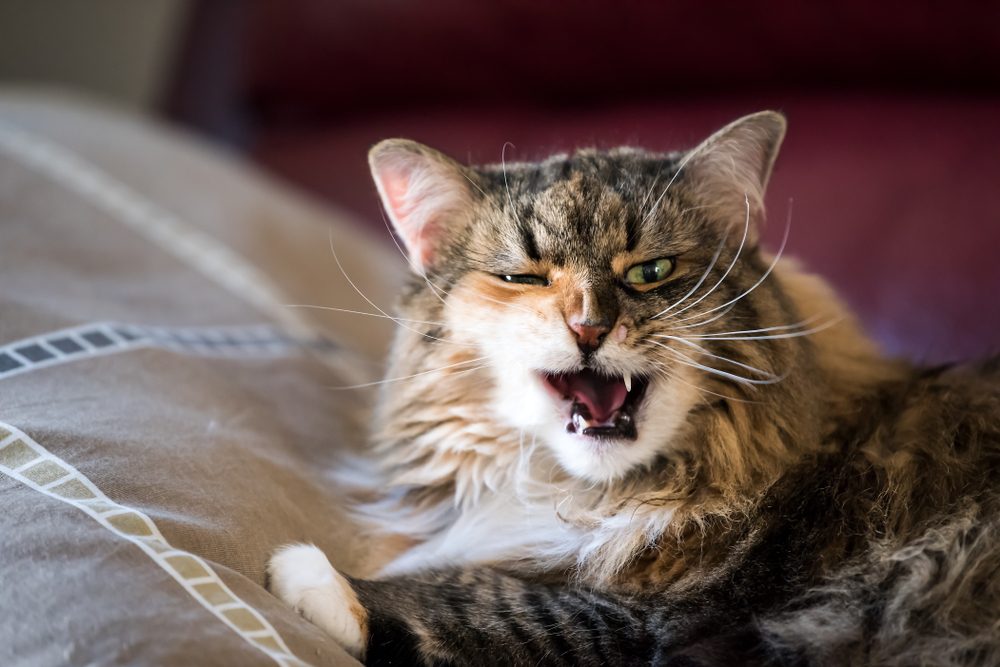
Understanding pet behavior can be a challenge, and if you see your cat hissing and growling, knowing what to do can help you deal with it and calm them down. Growling and hissing are natural behaviors for your cat. They’re communicating to you that something is wrong. It’s up to you to determine what’s going on so you can take the right steps to address the issue and help your cat feel better. In turn, the behaviors should stop, and both you and your kitty should feel happier. If your cat is hissing and growling, put these tips to use to help fix the problem.
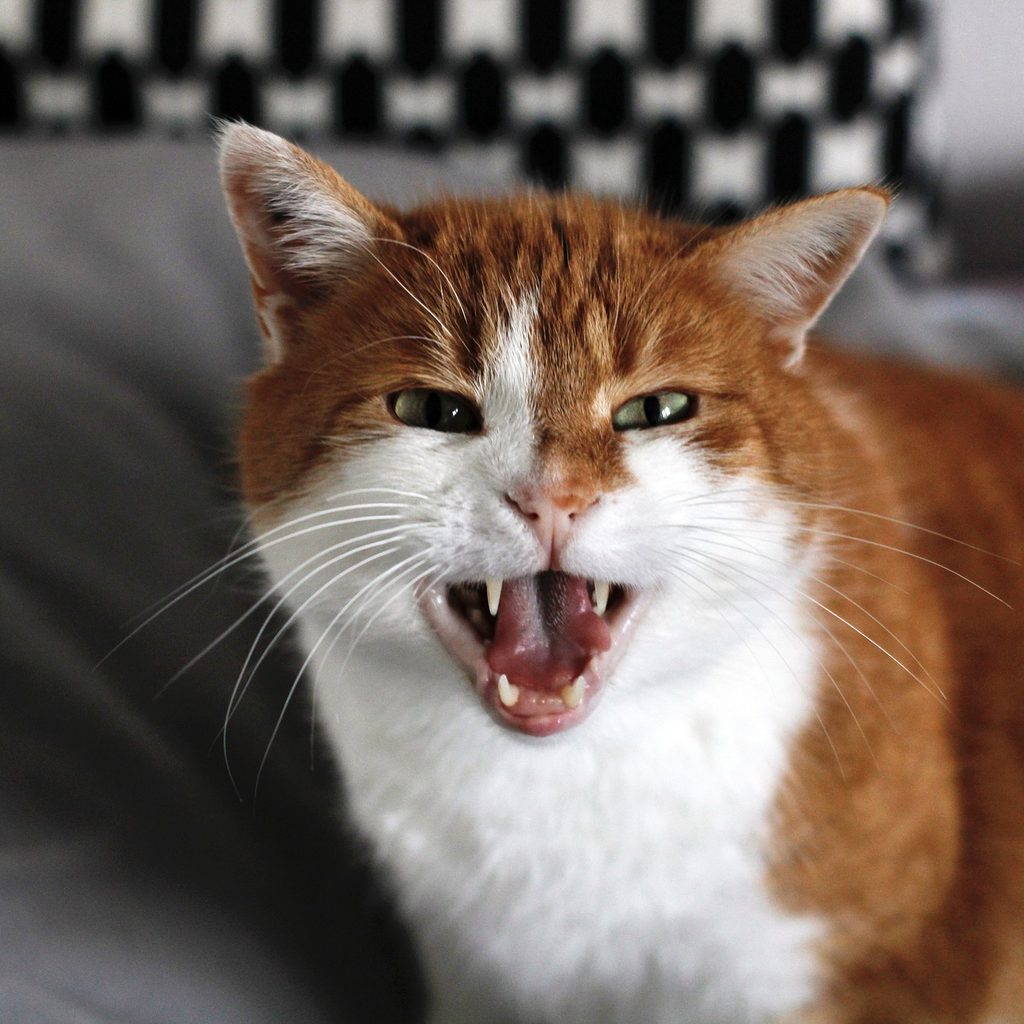
Try to identify the cause of the cat’s hissing and growling
It’s uncommon to see a cat hissing and growling for no reason. Usually, they are prompted by some sort of issue or change in a cat’s environment. If you can identify this issue, then you can take steps to make your cat feel safe and stop the hissing and growling.
Look for elements that have changed right before your cat started to hiss or growl. Maybe you reached out to pat them and startled them out of a nap, or maybe a child got overly rambunctious while petting your cat. Stressful situations like bringing home a new pet or baby can trigger this behavior, and some cats will hiss or growl when you’re trying to put them in a cat carrier because they know you’ll be taking them to the vet (it’s their own form of protest).
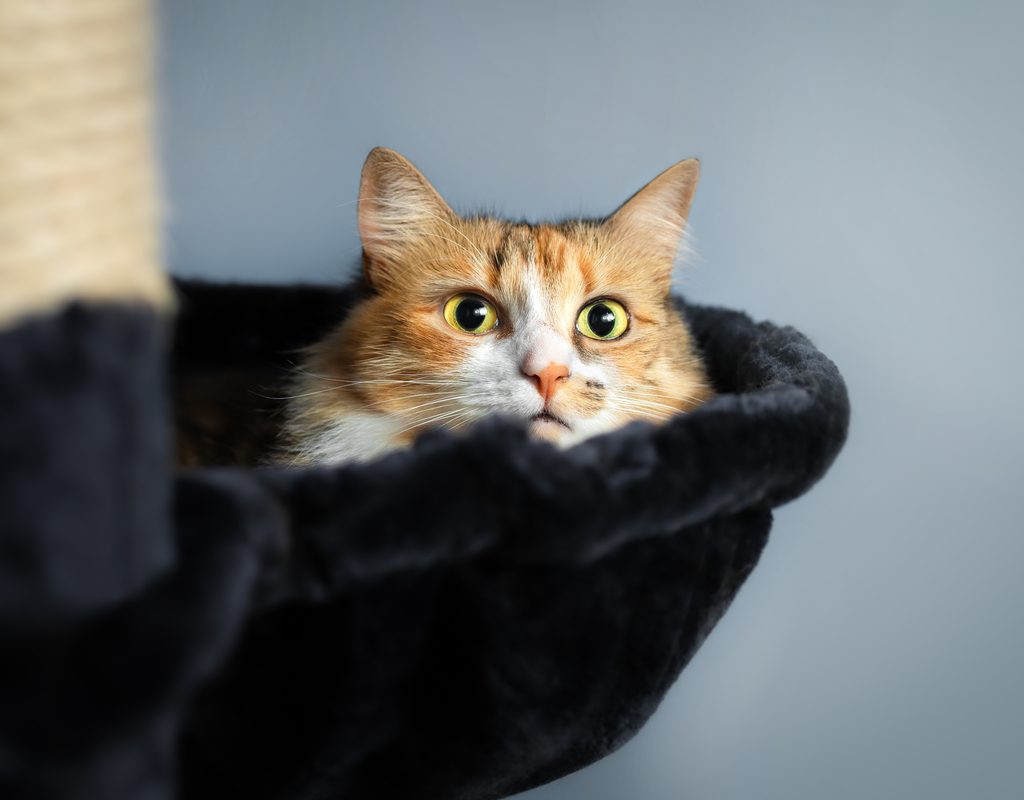
Give your cat some space
If your cat hisses and growls, they’re telling you to back off. Make sure that you and other members of your family listen. The simple act of stepping back and letting your cat be can reassure them and show them that they can establish their own space in the house.
Remember, hissing and growling are natural ways for a cat to communicate, and they don’t always signal that something’s significantly wrong. If your cat is feeling crowded, threatened, or just annoyed, they may hiss as a warning. Listen to that sign because it will often be followed up with a growl and, if your cat still feels threatened, they may strike or bite to make sure their message is understood. In most cases, just backing away will be enough to defuse the situation, and your cat should be able to calm down.
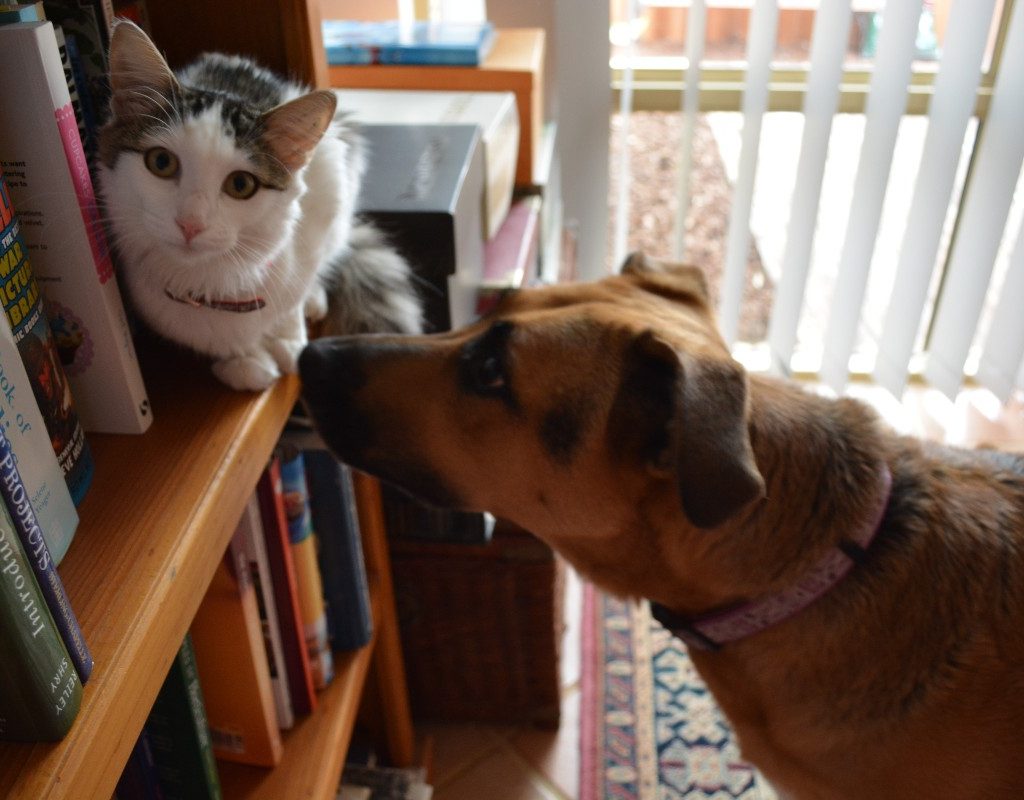
Make new changes gradually
Big changes, like bringing home a new pet, can stress a cat. When your cat is uncomfortable or feeling threatened, they’re more likely to hiss and growl not only at the new pet but also at you.
If your cat is reacting to a big change, like a new pet, then find ways to make that change gradually. Give your kitty a space in the house that’s all their own so they can feel safe. Perform gradual supervised introductions, and most of all, be patient. Even once your cat is well acquainted with a new family member, they may still hiss and growl more than normal until they fully trust that they’re safe with the intruder.
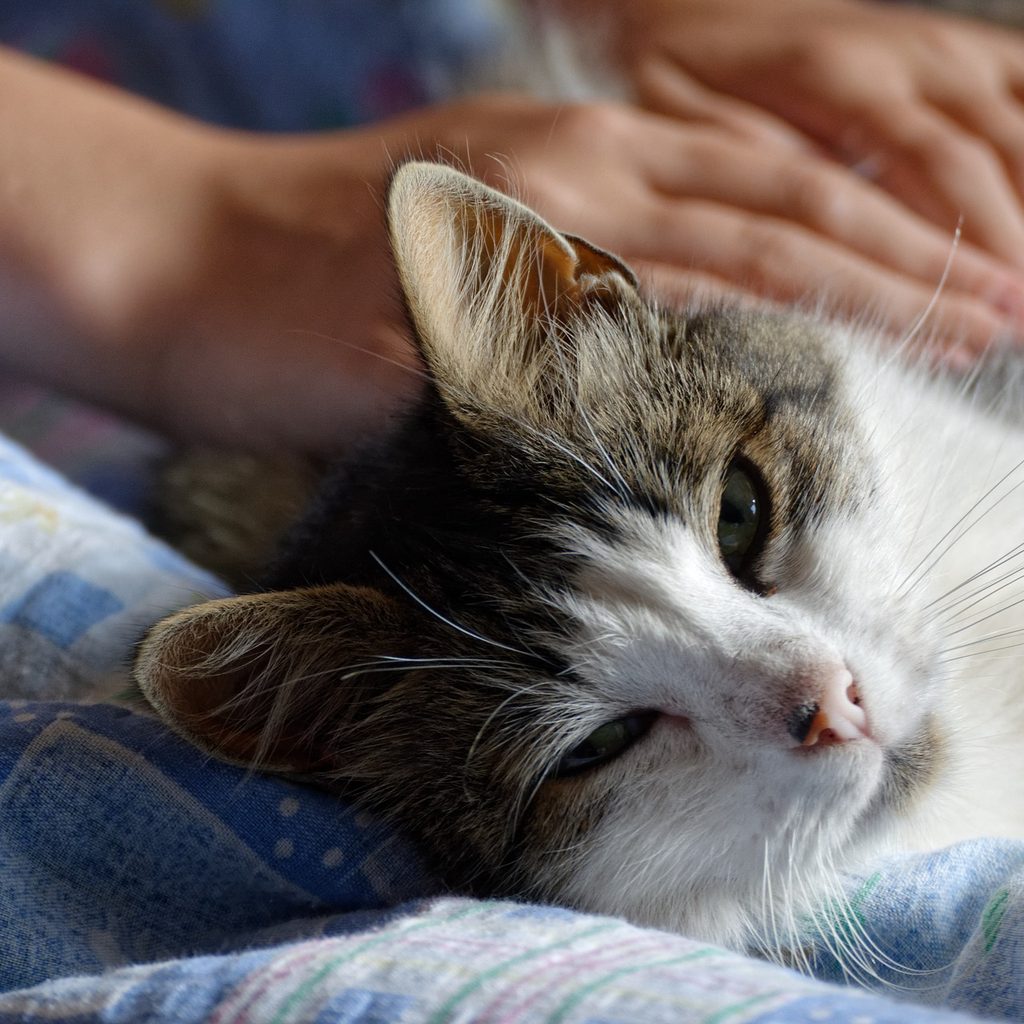
Support your cat with pheromones
If your cat is growling or hissing because theyre stressed, then using cat pheromones may help relieve their stress and reassure them. Pheromones come in multiple forms, and they’re easy to use. Consider getting a spray bottle of pheromones so you can spritz them in the room where your cat happens to be at the time. This option also is a great way to help comfort your cat when you’re putting them in the carrier for a trip to the vet.
You might also consider pheromones in a diffuser, which you plug into a wall outlet. The diffuser will automatically release pheromones periodically throughout the day for ongoing support. This option can be helpful if your cat spends most of their time in a particular room. The diffuser will keep the pheromones present in the room even when you aren’t home, helping to support and comfort your cat.
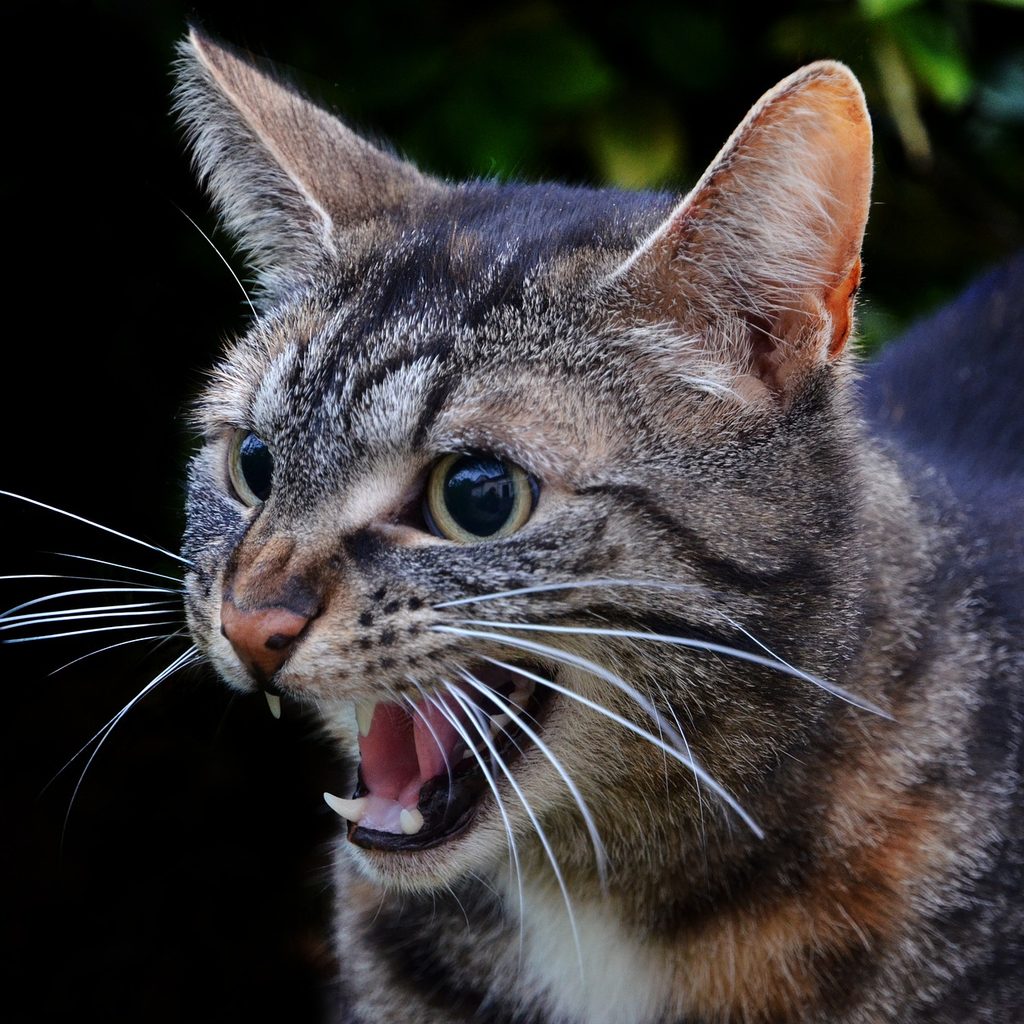
Head to the vet
Physical pain or illness also can prompt growling and hissing. If you can’t find a reason for your cat’s behavior, or if your cat suddenly starts growling and hissing for seemingly no reason, they may need a trip to the vet. Your vet can do a thorough workup, including palpating your cat’s body for pain, to help identify what might be causing the attitude change. By addressing the cause and relieving your cat’s pain, you should be able to reduce and eventually eliminate your cat’s growling and hissing, too.
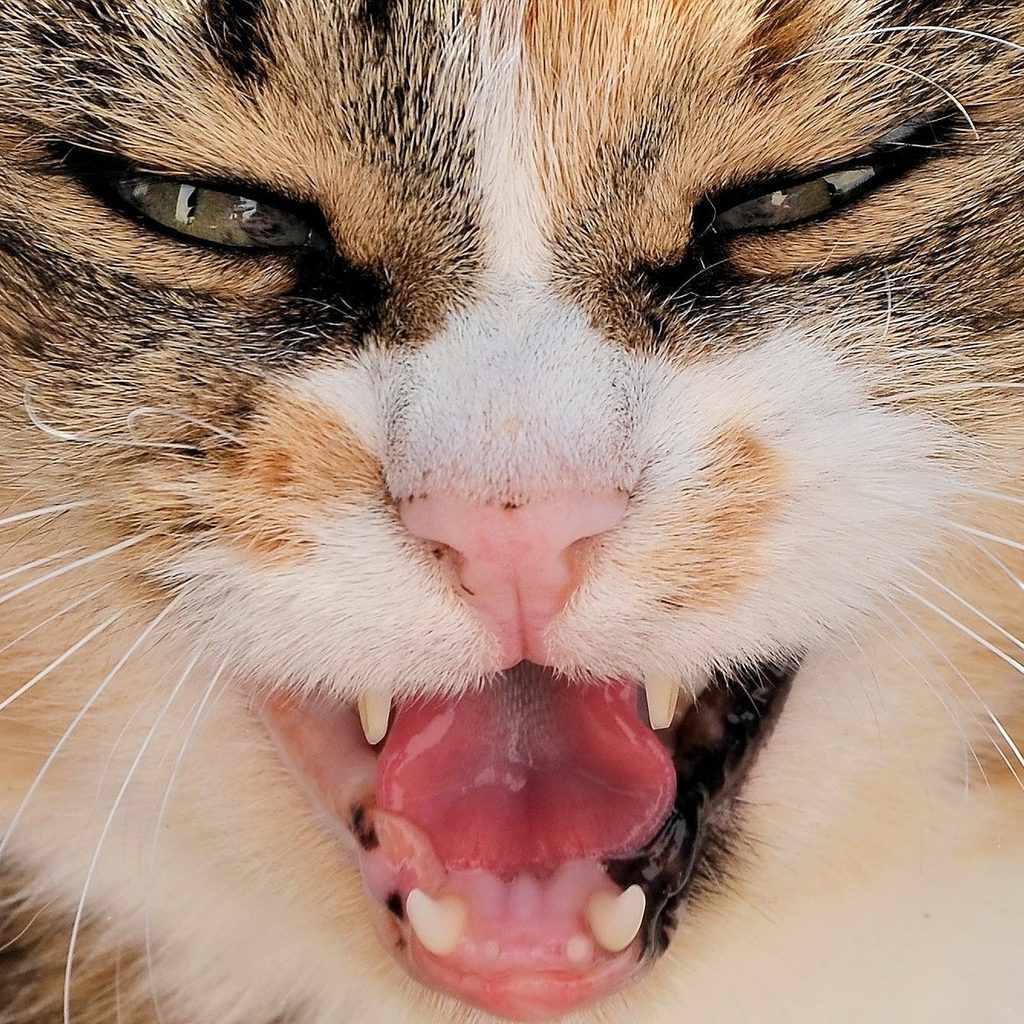
Should I ignore a hissing cat?
Most of the time, your cat should be pretty content and not feel the need to hiss or growl. But if they do, your kitty is telling you that something’s wrong, and they’re not feeling safe or comfortable. Carefully watching your cat and monitoring when they exhibit this behavior can give you important clues to its cause. Then, you can act to correct the issue, whether that’s simply giving your cat more space, trying to reassure and calm them, or even having your furry friend evaluated for an underlying pain or health condition. With a little time and effort, you can get your cat feeling safer and happier so they don’t need to hiss or growl.


